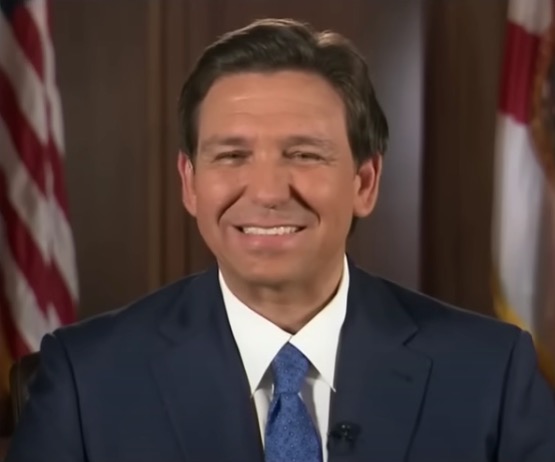
–>
January 24, 2023
In ruling on Governor Ron DeSantis’s decision last year to fire a state attorney who explicitly refused to enforce the state’s laws, a Florida District Court judge just provided the latest example of a significant problem in America’s justice system: “Progressive” prosecutors across the length and breadth of our nation are nullifying laws with which they disagree. This goes to the very heart of our constitutional system. The reason prosecutors act with this impunity is the Supreme Court’s grant of absolute immunity for “prosecutorial discretion.”
‘); googletag.cmd.push(function () { googletag.display(‘div-gpt-ad-1609268089992-0’); }); }
In Florida, Soros-supported State Attorney Andrew Warren was open about his disdain for Florida’s laws. He promised to “use discretion” as a vehicle for refusing to prosecute certain crimes, and he issued a flat-out promise not to prosecute any criminal laws governing abortions.
After being fired, Warren sued in federal court, alleging that DeSantis has violated both his First Amendment rights to free speech and his rights under the Florida Constitution. In what should have been a one-page opinion finding that Warren was properly fired, Federal Northern District of Florida Judge Robert Hinkle, a Clinton appointee, issued a 59-page opinion that, while finding the DeSantis had cause to fire Warren, nevertheless held that this was only because Warren was foolish enough to state his blanket refusal to prosecute crimes regarding abortion. Despite that holding, Hinkle spent the remainder of his opinion condemning DeSantis and endorsing Warren.
Hinkle’s opinion is horrendous and emblematic of just how corrupt our legal system has become. He argues strenuously that the only way prosecutors can be held liable for nullifying their states’ laws is if they unequivocally announce in advance that they intend to do so. Hinkle implies that, if a prosecutor throws in the magic phrase “prosecutorial discretion” when lambasting a state’s laws, then the prosecutor is free from consequences. This is a constitutional obscenity.
‘); googletag.cmd.push(function () { googletag.display(‘div-gpt-ad-1609270365559-0’); }); }
The decision oozes Hinkle’s bias. He characterized DeSantis’s attempt to enforce constitutional norms as “right-leaning” and characterized Warren as a “reform prosecutor” who was merely carrying “out the reform-prosecutor agenda he campaigned on….”
As to the merits of the case, it follows two paths: Regarding the first, addressing state constitutional claims, Hinkle held that the Eleventh Amendment prevents a claimant from suing in federal court over an alleged violation of a state constitution. And for the second, the First Amendment claims, Hinkle’s ultimate finding was that Warren’s single explicit refusal to enforce the law (made without the magical “discretion” incantation) justified his firing.
At that point, everything else Hinkle had to say about either the state or federal constitutional claims was legally meaningless. That didn’t stop him. The lengthy decision was obviously intended to give leftist prosecutors a roadmap for circumventing laws with which they disagree. Indeed, most of what he wrote was simply to lambaste DeSantis, as this example shows:
[U]nder the Florida Constitution, a governor cannot properly suspend a state attorney just for implementing a reform-prosecutor agenda or based on general dissatisfaction with the state attorney’s performance—for being a reform prosecutor rather than a law-and-order prosecutor. It is not surprising that in this litigation, the Governor has not acknowledged that this was a factor in the suspension. But it plainly was. The Governor was looking for a reform prosecutor from the outset. A reform prosecutor is what Mr. Keefe found. If the charge against Mr. Warren was that he actually carried out the reform-prosecutor agenda he campaigned on, he would probably confess.

Image: Ron DeSantis. YouTube screen grab.
It’s important to understand why “prosecutorial discretion” in the hands of leftists gravely threatens our federal and state constitutions, with the latter tracking on the former in relevant part. Those constitutions divide government into three branches, spelling out each branch’s powers, duties, and limits.
The U.S. Constitution Article I, section 1 provides that the “legislative powers” to propose, pass, modify or rescind any law reside solely with Congress. Article II, section 1 states that the power to enforce those laws resides solely with the Executive branch. In Article II, section 3, the Constitution imposes upon the Executive the solemn duty to exercise that power (i.e., to “take Care that the Laws be faithfully executed”).
‘); googletag.cmd.push(function () { googletag.display(‘div-gpt-ad-1609268078422-0’); }); } if (publir_show_ads) { document.write(“
Thus, the Constitution holds that citizens’ fundamental rights encompass a legislature solely responsible for passing laws and an executive branch that will enforce those laws. Further, Article IV, section 4 mandates that all states must have a similar organization. The State of Florida is no different.
Notably, Article V provides the only two means to amend Articles I or II (or any other provision in the Constitution). One method is a constitutional convention, something we have never done. The second method is ratification by a super-majority in Congress, followed by ratification by three-fourths of the states, something We the People have done to approve 27 Amendments, with the last occurring in 1992.
Those who wish to change the Constitution’s powers, duties, and responsibilities must do so via Article V. No one may do it by fiat, as the Soros prosecutors are nonetheless doing today. This is so important that George Washington, in his 1797 Farewell Address to the nation, said,
If in the opinion of the People, the distribution or modification of the powers be in any particular wrong, let it be corrected by an amendment in the way which the Constitution designates. But let there be no change by usurpation; for though this, in one instance, may be the instrument of good, it is the customary weapon by which free governments are destroyed.
When a prosecutor (who works for the Executive branch of government) refuses to enforce a law on ideological grounds—an act that defines every prosecutor who has entered office with George Soros’s support—he is effectively nullifying those laws with which he disagrees. His broad-brush refusal works a fundamental and wholly unconstitutional change to his state, locality, or the whole nation (such as an HHS Director opting not to enforce our immigration laws).
In effect, the prosecutor is exercising the legislative power solely given to Congress or, in Warren’s case, Florida’s legislature. That should not merely be grounds for impeachment or firing; it should be prosecutable as a violation of the civil rights of all American citizens.
Gov. DeSantis was completely justified when he fired Warren for assuming the power to nullify Florida’s laws. No executive official in this nation, at any level of government, should be able to nullify duly passed laws.
Moreover, Hinkle’s opinion evinces a level of bias and gaslighting one should never see coming from a federal judge. In a sane world, Hinkle should be impeached on the ground that he has failed to uphold and defend the Constitution.
Wolf Howling is a pseudonym. You can see more of his writing at Bookworm Room.
<!– if(page_width_onload <= 479) { document.write("
“); googletag.cmd.push(function() { googletag.display(‘div-gpt-ad-1345489840937-4’); }); } –> If you experience technical problems, please write to [email protected]
FOLLOW US ON
<!–
–>
<!– _qoptions={ qacct:”p-9bKF-NgTuSFM6″ }; ![]() –> <!—-> <!– var addthis_share = { email_template: “new_template” } –>
–> <!—-> <!– var addthis_share = { email_template: “new_template” } –>







